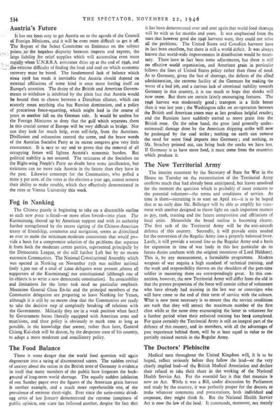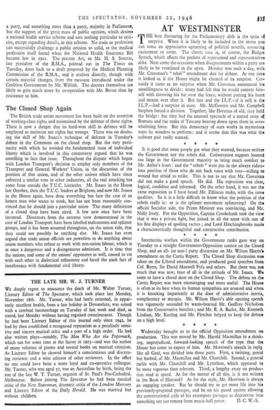The Doctors' Plebiscite
Medical men throughout the United Kingdom will, it is to be hoped, reflect seriously before they follow the lead—or the very clearly implied lead—of the British Medical Association and declare their refusal to take their share in the working of the National Health Service Act. For the essential fact is that that measure is now an Act. While it was a Bill, under discussion by Parliament and study by the country, it was perfectly proper for the doctors to make whatever comments and protestations, both individual and corporate, they might think fit. But the National Health Service Act is now the law of the land. It commands, moreover, not merely
a party, and something more than a party, majority in Parliament, but the support of the great mass of public opinion, which desires a national health service scheme and sees nothing particular to criti- cise, except regarding details, in this scheme. No trade or profession can successfully challenge a public opinion so solid, as the medical profession itself found when the National Health Insurance Bill became law in 1911. The present Act, as Mr. H. S. Souttar, late president of the B.M.A., pointed out in The Times on Tuesday, dates back to a draft proposed by the Medical Planning Commission of the B.M.A., and it evolves directly, though with certain material changes, from the measure introduced under the Coalition Government by Mr. Willink. The doctors themselves arc likely to gain much more by co-operation with Mr. Bevan than by resistance to him.



































 Previous page
Previous page